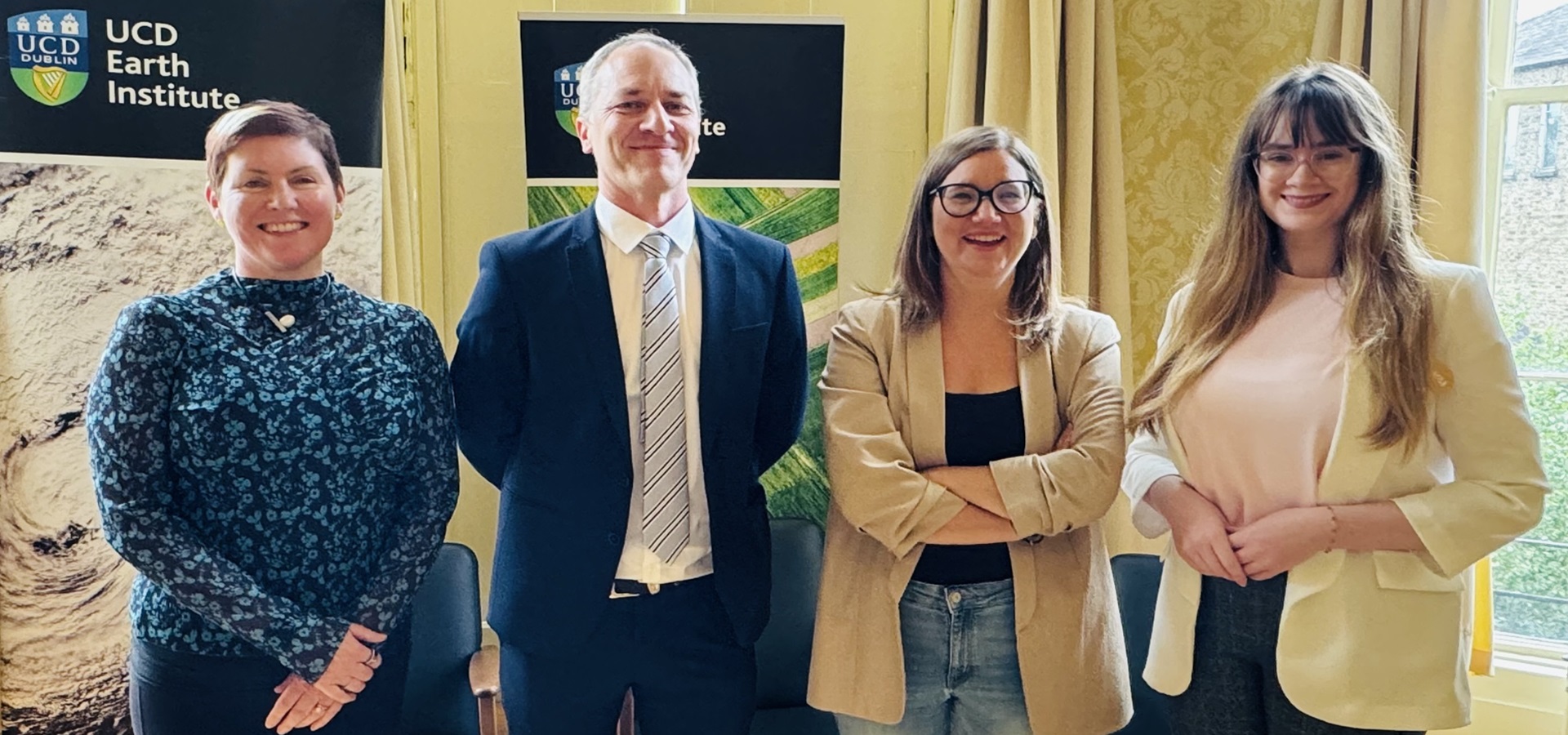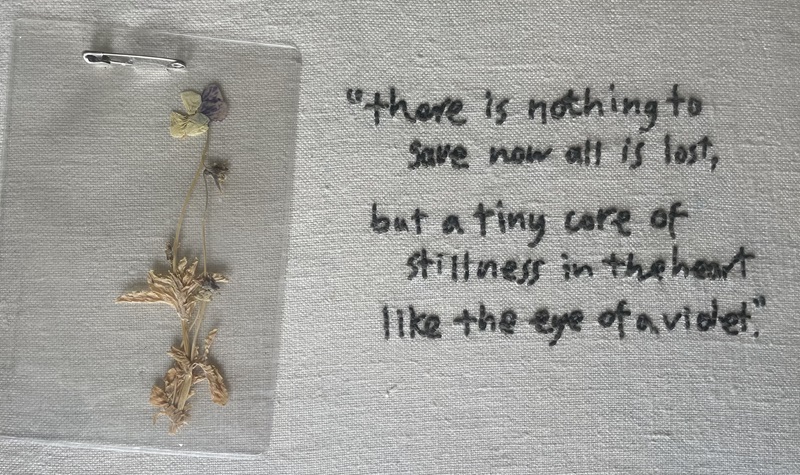Institute members awarded IRC research funding to tackle societal challenges
The Irish Research Council Collaborative Alliances for Societal Challenges (COALESCE) programme just announced its 2021 awardees and we are delighted to see four projects by Institute members receiving awards on crop diversity, food security and sustainability; public green spaces in urban areas; food secuirity and climate resilience in Mozambique, and food security in prehistoric Ireland.
Strand 2A: Open Call for interdisciplinary research:
CROPREVIVE: mapping underutilised crops in Ireland - past, present and future
Led by Associate Professor Meriel McClatchie (School of Archaeology) with Dr Sonia Negrao (School of Biology & Environmental Science)
This project explores the significant diversity in crops grown in Ireland’s past and how this diversity has become more restricted over time. This is a problem because over-reliance on a narrow variety of crops threatens our food security (our ability to access food) at a time of climate change and environmental degradation. Crop diversity is at the centre of climate change adaptation strategies, and ancient crops can help in developing solutions to food security and agricultural sustainability. The project will draw upon archaeological and historical evidence to find out what crops were grown in Ireland from 6000 years ago up to recent centuries and aims to reveal how crops such as rye, emmer wheat and peas became underutilised, despite the fact that they are nutrient-dense, suited to European climates and environments, and viable for sustainable production. CROPREVIVE will merge these findings with exciting new insights from plant sciences to seek modern crop varieties that can be sustainably produced and grown successfully into the future, even in the changing environments and climates that we are experiencing.
Green Space Engage
Led by Associate Professor Michael Lennon (School of Architecture and Environmental Policy) with Professor Michela Bertolotto, Dr Gavin McArdle and Dr Aura Istrate
The ‘new normal’ of remote working presents an opportunity for enhanced urban health and wellbeing by localising work, services and recreation in walkable neighbourhoods. However, this pandemic-transformed context also poses a challenge for urban planning and design as the increased demand for public green spaces during the pandemic outlasts the crisis. This project directly tackles this problem by harnessing and integrating a range of social science and computer science research approaches to produce an innovative knowledge cocreation methodology. Grounded in a novel theoretical approach, a unique coalescence of research methods will be mobilised with local communities and key decision makers to co-create new knowledge on green space perceptions. This integrative approach will open new lines of research at the interface of public health, planning, geography and landscape architecture. This new knowledge will also inform the co-production of planning, design and management guidance for public urban public urban green spaces in response to evolving patterns of living that have intensified and diversified the demands placed on such spaces as local anchors for maintaining and enhancing health and wellbeing.
Strand 2B - Better World Awards co-funded by Department of Foreign Affairs (Irish Aid):
SYNERGI: Mozambique (SociallY iNclusive Edible uRban Green Infrastructure)
Led by Dr Christine Bonnin (School of Geography) with co-PI Ines Raimundo from Eduardo Mondlane University and also on the project team Dr Tobi Morakinyo (co-I) and Associate Professor Ainhoa Gonzalez (both School of Geography).
Low income and vulnerable households, social groups, and communities living in rapidly growing cities across Africa face concurrent challenges of maintaining food security whist coping with experienced impacts of climate change. The aim of SYNERGI is to investigate the potential for co-creating socially inclusive edible Urban Green Infrastructure (UGI) as a strategy to support food security and climate resilience in two such rapidly growing cities in the context of Mozambique: the national capital Maputo and Nampula city. Our focus is on socio-economically vulnerable communities whose access to sufficient and good food is limited, as is their participation in food system structures and outcomes. Our research team will work with DFA/Irish Aid, CSOs and community groups, using participatory action research and citizen science to co-design, implement and evaluate edible UGI initiatives as practical ways to improve food security outcomes while enhancing climate resilience.
Strand 1L INSTAR+ funded by National Monuments Service of the Department of Housing, Local Government and Heritage, in partnership with the Heritage Council
FOODSEC: Food security in Bronze Age Ireland
Led by Associate Professor Meriel McClatchie (School of Archaeology)
Achieving food security is a key concern in modern societies but the challenge of ensuring that food is available and accessible stretches back thousands of years. Without food security, even the most complex societies in prehistoric Europe could have faltered. This project will pose the question: how did past societies in Ireland manage food security? Detailed analysis of new evidence can help us understand food security in Ireland’s past. To achieve this, the project brings together a diverse group of people from archaeology, folklife, food science and farming to examine different strands of evidence and discover how past societies dealt with the challenges of achieving food security. A new scientific basis will be established to understand food security in prehistoric Ireland, thereby helping us all reconnect with lost practices and learn about Ireland’s deep history as a food producer.
Congratulations to all involved and we look forward to following the development of these projects!
The COALESCE scheme is run by the Irish Research Council in partnership with a number of government departments and agencies. In the fourth cycle of the competition just announced, over €4.9 million was awarded to projects demonstrating excellent research addressing national and European-global challenges across a number of strands. Overall, nine of the twenty-one projects funded this year through the COALESCE scheme are led by UCD researchers. You can read the full list here.

